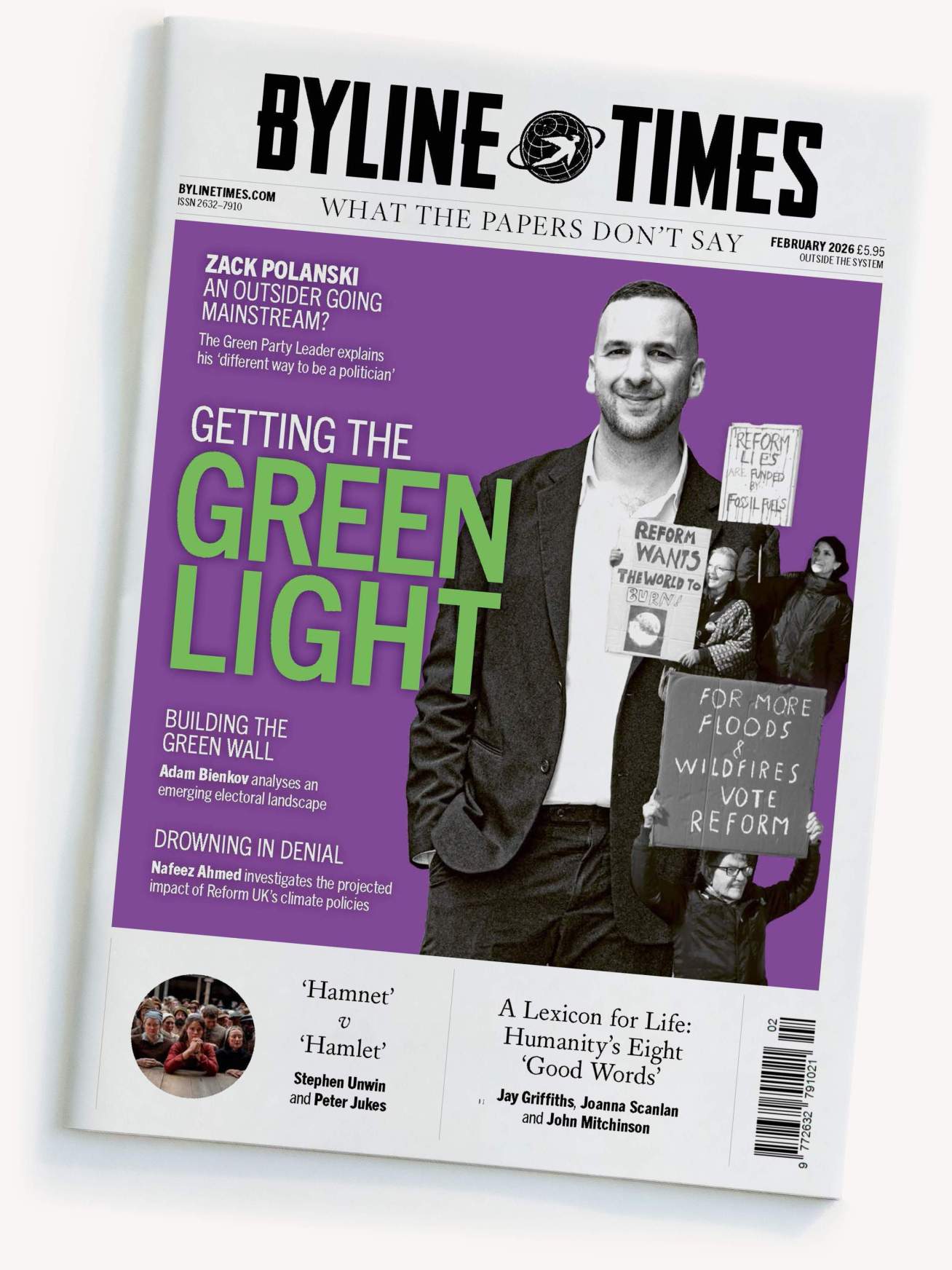
Read our Monthly Magazine
And support our mission to provide fearless stories about and outside the media system
JD Vance has berated Europe for its free speech record again. In conversation with the United Kingdom’s Foreign Secretary David Lammy, he said we “got a little too comfortable with censoring rather than engaging with a diverse array of opinions”. He’s right. We have.
But here’s the kicker – Vance failed to address the key issues of the administration of President Donald Trump.
Vance said he worried about free speech in the USA, only he linked it to the years 2020-2024 when the country was led down a “very dark path under the Biden administration”, thereby sidestepping what Trump’s administration is doing to free speech in the present.
Let’s be clear here – free speech in the supposed land of the free is far worse today than under President Joe Biden. It has become so dire that at Index on Censorship – an organisation established in 1972 within the context of the Cold War, when the USA was more friend than foe – we have made the country the focus of our latest Index on Censorship Magazine.
The attacks are happening across the board, impacting all the central pillars that support free speech.
Trump’s Targeted Attacks on Free Speech
Let’s start with the press, an institution specifically name-checked in the First Amendment, Trump has spent years calling journalists and broadcasters who challenge him “fake news” and “enemies of the people”.
One can become inured to his attacks. It’s important not to be. I often remind myself of the words of Nina Khrushcheva, Nikita Khrushchev’s great-granddaughter, who wrote for Index in 2017 about her horror at hearing such Stalinist words repeated in the USA. “When I was growing up in the 1970s, not even Pravda used such ominous language for Kremlin critics,” she said.
Trump doesn’t just call the press enemies – he treats them as such. Journalists are barred from the Oval Office press pool for not renaming the title Gulf of Mexico; they’re targeted with billion-dollar defamation lawsuits. A Damocles’ sword hovers overhead; Trump has called for the overturning of the Supreme Court’s 1964 ruling in New York Times Co. v. Sullivan, legislation that reaffirmed the media’s essential role in US democracy.
Some say journalists are the canary in the coalmine; others say it’s writers more broadly. That’s partly why we harp on about book bans at Index.
Of course there have always been efforts to censor literature. It’s just that today it’s happening at scale. Consider this: in 2014, there were 183 titles targeted for removal from public and school libraries; in 2023, that figure rose to 4,240, according to the American Library Association.
Most of these challenges come from politicians and parents in Republican states, and there’s a tiresome predictability to the titles singled out – Margaret Atwood and Jodi Picoult books, ones with queer and race-related storylines, for example. The calls are expanding, too.
In early April, the Navy removed 381 books supposedly promoting DEI from the US Naval Academy Library following an order from Defence Secretary Pete Hegseth’s office. And the attacks go beyond the page. When we interviewed Kim A Snyder, director of the film The Librarians, she told us some librarians even had stalkers.
As for protest, it does still exist in the USA. The No Kings rallies across the country saw millions turn out. Except they came at the end of a week where the National Guard had been called to quell protests in Los Angeles, some of which were violent, many of which were not.
A trial began today about the legality of this. Bullets, bean bags and tear gas were deployed against demonstrators and the press alike. A police helicopter circled overhead and issued a warning: “I have all of you on camera. I’m going to come to your house.” Such a scene happening in LA feels more like it’s part of a Hollywood action movie than a real-life scene in a nation that positions itself as the world’s leading democracy.
Beyond Los Angeles, the Trump administration’s get-tough attitude to pro-Palestine college protests has seen encampments and marches drop off compared to a year ago. To be sure, this isn’t all about Trump.
Biden bears responsibility here, too, hardly treating the Gaza protests last year with a soft touch. But it’s under Trump that students who have led protests, or even just penned seemingly uncontroversial op-eds, have disappeared. It’s under Trump that universities have been financially stung.
And what about that first line of defence, the right to request a lawyer? In a surreal moment earlier this year, I sat with senior partners from leading law firms, all of whom spoke about their fears for the profession following the Trump attacks. They wanted to discuss how they could bond together and respond with a robust defence of the rule of law.
Months on, there appears to be growing solidarity and more firms that have turned around and said they won’t cave into pressure from the presidency. I salute their response. I just worry that courage and conviction don’t come from limitless pots. It’s easy to be worn down and to capitulate.
I could go further on the attacks. The words that have been banned from government discourse, the DEI schemes scrapped, the menstrual apps that have been deleted out of fear that the data could be weaponised in states where abortion is illegal.
All of these are stories we’ve covered recently at Index, our attention increasingly drawn across the pond. We’ve even asked if we’re entering the age of the American dissident. Such a question would have been met with laughter back in 1972 when the term was synonymous with the USSR. Not so now.
Personal Calibrations
My final note is this: I pondered whether I should write this article at all. I like to travel to the USA. Can I still visit if I so brazenly criticise the US administration?
The thing is, I fear that boat has already sailed. I’ve turned down invitations to two stateside conferences this year because I’ve already written columns like this. It is madness. I advocate for free speech – the very thing Vance says he cares about. But his words, and indeed Trump’s proclaimed commitment to the principle, ring hollow, a case of free speech for me and not for thee.
I’m pinching myself. Because of my advocacy in the China and Hong Kong space, I won’t visit either. I never thought I’d add the USA to the list. When I hear of people being denied entry to the USA because their social media histories have been searched, I sit up, though.
I’ve made the decision to keep on talking up and out. I’m the CEO of a free speech organisation after all. What signal would it send if I kept schtum? Others will and have made a different choice.
So my message to Mr Vance is this – yes, Europe has free speech problems, and yes, there were problems under Biden. But your administration is not correcting course. The opposite in fact. The view from across the pond is this: a nation increasingly plagued by the very issue that Index was founded to oppose – censorship.



